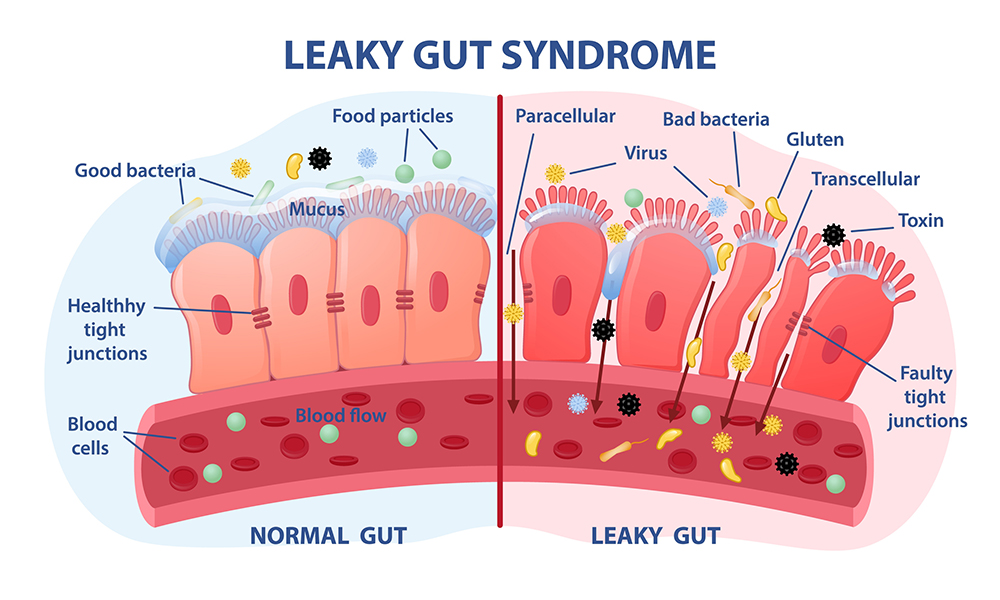WHAT IS LEAKY GUT? The link between diet and leaky gut syndrome explained by an RDN
Before you can understand leaky gut, you need to know the construction of the small intestines and their function.
The small intestine is about 25 feet long, the longest segment of the gastrointestinal tract. It is responsible for breaking food down and absorbing its nutrients, and then solidifying the waste. The intestines have a strong protective lining composed of a single layer of specialized epithelial cells that are linked together by tight junctions. This prevents food, digestive juices, and bacteria from leaking out. If this lining is damaged, substances that should remain inside the gut can leak out. Leaky gut refers to intestinal permeability or the ability for things to move through the intestinal lining. To be sure you understand, these tight junction proteins are the gateway between your intestines and your bloodstream. They control what is allowed to pass into the bloodstream from your digestive system.
When someone has a ‘leaky gut’, it means that the gut lining is damaged and cannot optimally function as a barrier any longer. The spaces between cells allow harmful substances like gluten, bad bacteria, and undigested food particles to enter your system and cause considerable damage to your health.
Leaky Gut Causes:
Some people, for a variety of reasons, may, be predisposed. But anyone can develop increased intestinal permeability. A poor diet is the primary reason people develop leaky gut, particularly eating ultra-process foods along with saturated fat. In addition, inflammation can lead to a leaky gut because inflammation can increase intestinal permeability.
What are common modifiable causes of leaky gut?
Additional modifiable contributing factors that put you more at risk for developing leaky gut include:
- Dysbiosis: an imbalance of healthy and unhealthy microbes that compose the microbiome
- Poor Diet: Insufficient fiber and highly processed foods
- Alcohol: heavy use
- Toxins: additives, chemicals, synthetics, some antibiotics, and drugs
What is the best way to heal a leaky gut?
You can heal the intestinal lining while managing the symptoms of leaky gut. Medical Nutrition Therapy with a registered dietitian nutritionist (RDN) who is experienced in gut health can customize a diet and lifestyle program.
Some simple steps to take to improve gut health include:
- Reducing ultra-processed foods (or eliminating)
- Moderating alcohol consumption
- Reducing the intake of saturated fats
- Improving fiber consumption
Understand Leaky Gut
To be sure you understand this complex condition, I will explain leaky gut another way. Almost all your internal organs are protected from the outside world. The inside of the gastrointestinal tract is the prime exception, coming in contact with items from the outside world every day. The intestinal epithelial lining, together with factors secreted from it, forms a barrier that separates the host from the environment. When the permeability of this epithelial lining is compromised, the passage of toxins, antigens, and bacteria into the lumen can enter the bloodstream creating a leaky gut, also known as intestinal permeability.
More Information:
Aleman RS, Moncada M, Aryana KJ. Leaky Gut and the Ingredients That Help Treat It: A Review. Molecules. 2023 Jan 7;28(2):619. doi: 10.3390/molecules28020619. PMID: 36677677; PMCID: PMC9862683.
Harvard Health, Leaky Gut: What is it and what does it mean for you?
WebMD, Leaky Gut Syndrome



